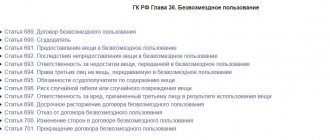between the developer company and the shareholder, and the buyer’s entry into the housing construction cooperative
(housing cooperative)
. In today’s article, we will talk about the advantages and disadvantages of each of these methods of buying a home, and we will try to figure out which one is better to give preference to.
Each of the methods mentioned is absolutely legal and is accompanied by relevant legislation. In the first case, the relationship between the shareholder and the developer is regulated by Federal Law-214, and in the second case, when the buyer joins the cooperative, Federal Law-215 is in effect.
By the way, today the vast majority of transactions on the Moscow primary real estate market
(about 90%)
are concluded precisely under the DDU, however, housing cooperatives have also not lost their relevance, although such transactions account for only about 8%.
What is the idea of shared and cooperative construction?
The idea of shared construction (within the framework of preschool education)
lies in the fact that the company attracts money from shareholders
(funds that, in essence, are an interest-free loan)
, builds apartments with this money and makes a profit. Shareholders, in turn, receive housing below market value for the funds provided.
The relationship between the shareholder and the developer is regulated by the provisions of Federal Law 214, which impose rather strict restrictions on the developer.
If the developer violates the rights of the shareholder in any way, he can defend his interests in court.

The idea of building cooperative housing (within the framework of housing cooperatives)
lies in the fact that citizens collect funds and organize construction work themselves
(hire a contractor, entrust him with the purchase of building materials, control quality, etc.)
.
On the one hand, participants can receive their apartments at a lower price (than under the DDU)
, since there is no profit for a third party, payment is made for work performed and construction materials purchased.
But, on the other hand, the law (FZ-215)
cannot protect citizens from them, because they themselves build housing and decide for themselves how and in what order this should be done.
Relations between the cooperative and the members of this cooperative are regulated by internal documents - the Charter on the one hand, and the Participation Agreement on the other.
At the same time, the Participation Agreement can be changed at any time, and if the participant’s relationship with the cooperative does not develop as the cooperative participant initially intended, then it will be difficult to defend his case in court.
What are housing cooperatives and preschool educational institutions?
Shared construction is one of the types of investment when one party undertakes to construct and commission a building to the second party according to an agreement. The responsible party in this case is the developers.
The construction of an apartment building for housing cooperatives occurs somewhat differently. Such cooperatives are voluntary associations of citizens that carry out their activities on the basis of constituent documents.
Who are the developers and who are the shareholders?
Developers of housing cooperatives and shareholders of housing cooperatives are two different concepts, and you definitely need to know how they differ from each other.
The developer is usually a legal entity or individual who assumes responsibility for the construction or renovation of a building.
Most often these are investors or construction companies.
Many people confuse shareholders with persons who intend to live in the future in the constructed apartment building. In fact, everything is a little different. Shareholders usually participate in construction to make a profit, selling the property after putting the house into operation.
In other words, they ultimately receive the right to dispose of the property.
Reference: the persons who actually intend to live in such a house are usually called consumers.
You will learn what DDUs and housing cooperatives are from the video:
Price component

Housing in a housing cooperative can be purchased cheaper than from a developer under the DDU. Within the framework of shared construction, there are certain restrictions that cause a higher cost of real estate compared to cooperative housing:
Firstly,
the developer must not only recoup expenses, but also make a profit, otherwise his activities become meaningless. Construction by a cooperative has different priorities; participants need housing, so the primary task is to cover construction costs;
Secondly,
The developer, when selling housing, is forced to include VAT in the price.
Self-construction (by a cooperative)
is not subject to value added tax;
Third,
the developer cannot avoid the costs that arise when insuring his liability to shareholders; the law obliges to insure risks, and the costs are also included in the price of housing. There are no such requirements for housing cooperatives; however, the lack of transaction insurance significantly increases the risks of cooperative members.
Quality guarantees
The quality of construction is one of the most important parameters by which potential equity holders/shareholders often choose a new building.
Purchasing under the DDU presupposes that the shareholder is a consumer, therefore he is protected by the Consumer Rights Law.

In turn, a member of the cooperative (housing cooperative)
it is not, because a member of a voluntary association, in fact, consumes his own services. Thus, the court will not help protect the rights of the cooperative participant regarding the quality of housing and other construction parameters.
According to the DDU, the developer bears warranty obligations to the shareholder for five years. That is, if, after a certain time after accepting the apartment, the shareholder identifies shortcomings, the presence of which could not be determined at the time of transfer of housing, the developer is obliged to eliminate these shortcomings. Warranty period, which must be specified in the DDU (according to Federal Law-14)
is 5 years. In turn, housing cooperatives cannot be forced to eliminate shortcomings, since Federal Law-215 does not say anything about the warranty period.
Features of housing cooperatives
A housing construction cooperative has its pros and cons. This method of purchasing an apartment has more negative aspects. A special feature of purchasing housing through a housing cooperative is that before the shareholder can register ownership of the square meters already purchased, the developer, together with a BTI employee, measures the area and if there are more meters than according to the contract, the former will have to pay extra.
Pros and cons of housing cooperatives
The positive aspects include the following:
- the cost is less than when purchasing under DDU;
- discounts are often provided for housing;
- a shareholder, from a legal point of view, can take part in housing cooperative meetings and decide how construction will proceed.
Cons – there are more of them:
- there is no registration with Rosreestr, and therefore the shareholder may fall for scammers;
- a specific date for completion of construction is not specified;
- in addition, the shareholder will have to pay 1-3% of the total cost of the apartment for joining the housing cooperative;
- the price initially agreed upon may increase by the end of construction and the shareholder will have to pay more;
- The shareholder cannot resell the apartment, even by assignment, until he has registered ownership of it.
In fact, a shareholder has fewer rights than a shareholder.
Double sale protection
The DDU must be registered with Rosreestr, thus eliminating the possibility of multiple sales of the same apartment. Technically, something similar can happen, for example, an apartment will be sold once under the DDU, and the developer will sell it to several more clients under the Preliminary Sale and Purchase Agreement. But the shareholder who signed the DDU will be unconditionally recognized by a court decision as the sole owner of the property, and the remaining “applicants” will search for the truth for a very long time.
Joining a cooperative does not require mandatory registration of an agreement, so it is quite possible to sell an apartment to an unlimited number of buyers, although this is impossible to verify.

It is necessary to understand that the housing cooperative does not provide protection against fraud on the part of the cooperative management.
Stages
- A combined closed-end mutual fund is formed in cash.
- The developer routinely obtains a construction permit and organizes it through the General Contractor.
- UK D.U. The closed mutual fund enters into an equity participation agreement (DPA) and a purchase and sale agreement for a future property (IC, investment contract) with the Developer. The contract price is formed in such a way as to compensate for the income component of the Developer for the purposes of calculating income tax.
- UK D.U. The closed mutual fund enters into an agreement with the Buyers on the assignment of rights under the DDU (at the same time, the rights from the IC are not subject to assignment to individuals!).
- UK D.U. The closed mutual fund pays for its contract (DDU and IC) as necessary to finance construction. Accordingly, funds received under the DDU are transferred to escrow accounts, and the Developer receives financing from the bank. IC funds are not frozen and can be immediately used by the Developer.
- UK D.U. Closed mutual fund has the right to make an assignment of rights from the DDUS in favor of the Buyer, however, the margin of the management company D.U. The closed mutual fund will be subject to VAT, as a result of which tax savings will not be achieved.
- Upon completion of construction, the property becomes part of the assets of the closed real estate mutual fund for subsequent sale in accordance with the concluded preliminary agreements.
Tax optimization
It creates the opportunity to regulate the Developer’s cost base without symmetrically increasing the investor’s tax base (MC D.U. Mutual Fund), since the Management Company does not pay income tax on mutual fund operations. It is important that funds received from buyers are not frozen in escrow accounts in full. Please note that the mutual fund buys the entire volume of real estate in order to minimize the tax risk of the Developer. If the Developer independently carries out sales “to the market,” then the difference in the sales price may attract the attention of the Federal Tax Service.
Optimization is achieved through: a) tax-free sale by the mutual fund of finished housing after completion of construction, b) through the allocation of part of the future real estate in the Investment contract, c) due to the difference in the cost of the DDU and the price of assignment of rights under this DDU.
Protection against changes in the contract
A powerful argument
The shareholder may refuse changes to the DDU, and then the developer, in court, will have to return to the shareholder the amount paid at the time of conclusion of the agreement or pay a penalty (offer other ways to resolve the problem).
Federal Law-214 obliges the developer to indicate in the DDU all the parameters of the future apartment - the number of square meters, the cost per square, the total cost of living space, layout, type and quality of building materials, utilities, etc. If during the construction process there is a desire or need to change anything (for example , replace expanded clay block with cinder concrete, double-glazed windows with wooden frames)
, changes can only be made with the consent of the shareholder.
In the Participation Agreement (HCS)
making changes is much easier; it does not require the consent of each of the participants; the board of the cooperative only needs to obtain the consent of the majority.
Various methods can be used to achieve this, and often the proposal looks like an ultimatum (for example, if a decision is not made to make changes, additional funds will have to be raised, since the existing ones are no longer enough)
.
That is, a cooperative participant may, upon completion of construction, receive something that is not exactly what he originally expected (for example, less square footage, a different quality of housing, etc.)
and no one will be held responsible for this, the cooperative will not compensate for either moral or material damage.

If a participant wants to leave the housing cooperative before the house is built, he can do this in the manner prescribed in the charter. At the same time, the cooperative must transfer the paid amount to the participant’s account, and problems often arise with this that have to be resolved in court. Thus, the provisions of the charter may change by the time the participant leaves, and, according to the agreement, the return of money may take an indefinite period. The best option in this case would be the help of a qualified lawyer who will represent your interests in court.
What is DDU?
DDU (share participation agreement) is a way of purchasing an apartment in a new building, built with the money of future buyers.
This type of transaction is regulated by the norms of the Federal Law “On participation in shared construction of apartment buildings and other real estate and on amendments to certain legislative acts of the Russian Federation” dated December 30, 2004 No. 214-FZ and has its own characteristics. First of all, this is the need to register the DDU in Rosreestr: only after completing this procedure will it be recognized as valid.
The next feature of the method of purchasing housing with the help of a DDU is the time frame for obtaining ownership of the housing - the buyer receives it only after the house is put into operation and the apartment acceptance certificate is signed.
Note! It is worth considering the fact that the residential premises will not become your property immediately.
Positive and negative points for equity holders and developers
Shared construction has both undeniable advantages and many disadvantages. The main advantage here is the availability of housing. The cost of apartments from the developer is lower, and at the same time a person receives installments for several years - until the house is put into operation.
Other positive aspects of DDU include the following:
- guarantee of receiving a new apartment or a refund;
- the impossibility of changing the price of housing by the developer unilaterally;
- the possibility of terminating the agreement and collecting penalties from unscrupulous builders;
- availability of a guarantee for the apartment and communications located in the house.
While there are undeniable advantages, the disadvantages of this type of transaction are also quite significant:
- delay in processing documents due to mandatory state registration of the contract;
- the need to pay a penalty in case of early repayment of the full cost of the apartment;
- the terms of payments for housing are quite compressed and limited to the moment of delivery of the house;
- The maximum period for payment in installments is 5 years.
Thus, before deciding to purchase a home under the DDU, you should carefully weigh all the pros and cons.
Refund, penalties, compensation
Housing cooperative: hard facts
Residents of Saratov remember the high-profile case of how the chairman of the Kapitel-2002 housing cooperative left 274 participants without apartments, while about 160 million rubles were stolen, and construction stopped at the level of the eighth floor. Needless to say that the cooperative members never received any compensation?
According to Federal Law-214 (amendments that came into force in 2017)
The development company must be a member of a self-regulatory society, have an authorized capital and pay contributions to the compensation fund
(common for all developers)
.
In the event of bankruptcy of the developer, all payments in favor of shareholders will be compensated with funds from this fund. That is, if at the time of bankruptcy the house is not completed or put into operation, the shareholder can expect that the money will be returned to him or the house will be completed (in such cases, the SRO can transfer the property to another developer)
.
In such cases, achieve something from the cooperative (housing cooperative)
problematic.
The housing cooperative will be able to return the money only if it is in the account (although the fact that construction has stopped in itself indicates a lack of money)
.
Of course, you can’t count on additional payments (penalties, compensation)
, the return procedure is determined by the cooperative itself; if a cooperative member manages to return at least part of it, that will be very good.
To be fair, it is worth noting that the new amendments to the DDU are still only at the implementation stage, but there are already mechanisms that make it possible to ensure payments to shareholders - this is liability insurance and a bank guarantee.

In the case of housing cooperatives, insurance is not a mandatory requirement. So, if the management in organizing construction work turns out to be ineffective (which cannot be ruled out, since members of the board of the cooperative are not necessarily professionals in the construction market)
, and there is not enough money to complete construction, then you will either have to find additional funds or try to somehow realize the unfinished project.
Installment plan, mortgage, state support for mortgages
The advantage of purchasing housing through a housing cooperative is the ability to arrange installment plans for a long period (up to 7 years)
, moreover, money can be paid in installments even after the house is put into operation and occupied.
According to DDU (for Moscow)
The maximum installment period is 2 years.
A mortgage loan can be issued both for housing purchased under DDU and for housing constructed by housing cooperatives. Preferential mortgage programs can only be provided when purchasing real estate under the DDU; state support programs do not apply to cooperative construction.
Characteristic features of contracts

The significant difference between an agreement with a housing cooperative and a DDU lies in the consequences that occur after its signing: joining a randomly selected cooperative increases the risk of a shareholder becoming a victim of a fraudulent scheme. These agreements differ in other ways:
| Shareholder's agreement | Shareholder agreement |
| Regulated by Federal Law No. 214 | Regulated by Federal Law No. 215 |
| Must be registered with the FS GRKK | Registration in the FS GRKK only after putting the house into operation |
| The cost per square meter does not change | Possible increase in the cost of the apartment |
| Established start and end dates for construction | The construction time frame is not clearly defined |
| Legal liability for failure to meet deadlines for delivery of a residential building | The law does not provide for punishment for violation of construction deadlines. |
| Purchasing an apartment in installments is possible only until the residential building is put into operation | Installment payments are provided by law for a period that does not depend on the stage of construction of a residential property |
Important! The signing of additional agreements that do not comply with the terms of the main equity participation agreement is not mandatory. Before concluding an agreement with a housing cooperative, you should make sure that the developer has written down a clause that excludes the possibility of increasing the cost of 1 m2.







